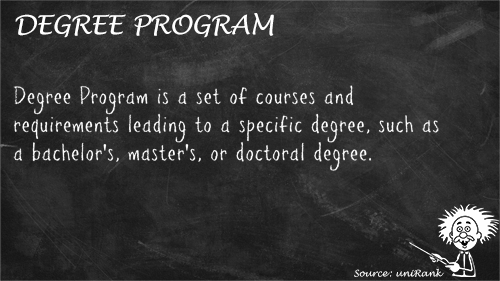Are you eyeing a lucrative career in sustainable energy? Look no further! According to the IRENA and ILO Annual Review 2024, the renewable energy sector is booming, creating millions of jobs. Our buying guide on sustainable energy degrees, renewable engineering, and more offers a detailed roadmap. Discover the top 3 programs that stand out from counterfeit models, with Best Price Guarantee and Free Installation Included. Don’t miss out on this chance to be part of the green revolution in US energy markets!
Sustainable energy degrees
The global transition to clean energy is on an upward trajectory. According to the IRENA and ILO Annual Review 2024, the renewable energy sector has the potential to be a major driver of economic growth, job creation, and social equity. This growth has led to an increased demand for professionals with sustainable energy degrees.
Common courses
Renewable energy overview
A solid foundation in renewable energy is crucial for any sustainable energy degree. Courses typically cover the various types of renewable energy sources such as solar, wind, hydro, geothermal, and biomass. For example, they will explain how solar panels convert sunlight into electricity and how wind turbines capture wind energy. Pro Tip: Look for courses that include hands – on lab work or field trips to renewable energy facilities to gain practical experience.
Brown University master of science in sustainable energy core courses
The core courses at Brown University’s master of science in sustainable energy offer in – depth knowledge. One such core course might be focused on understanding energy systems from a holistic perspective, like CEE 207A Understand Energy. This course gives students an overview of how different energy sources interact and the implications for society and the environment.
Other program core course categories
Other programs often have core courses in multifaceted aspects. For instance, courses may cover Carbon Capture, Utilization and Storage (CCUS) technology areas and low – carbon energy conversion systems. You can also expect to find courses related to greenhouse gas management, policies, and global climate change applications. Some common course titles include Foundations for Carbon/Greenhouse Gas Management and Global Climate Change Applications in Greenhouse Gas Inventories.
Research opportunities
Universities with sustainable energy degree programs usually offer numerous research opportunities. Students may get involved in projects related to the development of new renewable energy technologies, improving energy efficiency in buildings, or researching the economic viability of large – scale renewable energy projects. For example, a student might work on a project to optimize the design of solar panels to increase their efficiency. This hands – on research experience not only enhances their understanding of the subject but also makes them more marketable to employers. Pro Tip: Look for programs that offer research funding or partnerships with industry leaders.
Assessment methods
Assessment in sustainable energy degree programs can be diverse. It may include traditional exams, research papers, and group projects. For example, students might be required to write a research paper on the potential of a specific renewable energy source in a particular region. Some courses may also include practical assessments, such as building a small – scale wind turbine or conducting an energy audit of a building. As recommended by industry – standard education tools, a combination of these assessment methods helps to ensure that students have a comprehensive understanding of the subject matter.
Skills sought by employers
Employers in the renewable energy sector are looking for a variety of skills. Technical skills in areas such as engineering, physics, and renewable energy systems are highly valued. Soft skills like communication, collaboration, and problem – solving are also essential. According to the IRENA and ILO Annual Review 2024, as the industry grows, there is an increasing need for professionals with business administration and marketing skills to help promote and manage renewable energy projects. Pro Tip: Consider taking courses or obtaining certifications in these in – demand skills to enhance your job prospects.
Skill utilization in real – world projects
In real – world projects, the skills learned in sustainable energy degrees are put to use. For example, a team of engineers with sustainable energy degrees might work on a large – scale solar power project. They will use their technical skills to design and install the solar panels, while also relying on their communication and collaboration skills to work effectively with other stakeholders such as construction crews and local communities. Try our renewable energy project simulator to get a better understanding of how these skills are utilized.
Long – term career growth prospects
The long – term career growth prospects for individuals with sustainable energy degrees are promising. As the world continues to shift towards renewable energy, the demand for qualified professionals will only increase. Graduates can expect to work in a variety of sectors, including energy production, research and development, policy – making, and consulting. For example, they could start as junior engineers in a renewable energy company and work their way up to project managers or senior researchers. ROI calculation examples show that investing in a sustainable energy degree can lead to significant long – term career and financial rewards.
Key Takeaways:
- Sustainable energy degrees are in high demand due to the growth of the renewable energy sector.
- Common courses cover renewable energy sources, core energy understanding, and specialized areas like CCUS.
- Research opportunities, diverse assessment methods, and the development of both technical and soft skills are important aspects of these programs.
- Graduates can expect good long – term career growth prospects in multiple sectors of the renewable energy industry.
Renewable energy engineering
The renewable energy engineering sector is booming, with the IRENA and ILO Annual Review 2024 highlighting its potential to drive economic growth, create jobs, and promote social equity. In fact, in the last five years, the demand for green skills and workers in the field has been rising exponentially, and renewable energy industries have created millions of new jobs. This section will explore the common courses that make up a renewable energy engineering curriculum.
Green technology degrees
The global demand for green technology is on the rise, with the renewable energy sector creating millions of new jobs in the last five years (IRENA and ILO Annual Review 2024). Green technology degrees are becoming increasingly crucial as they equip students with the skills needed to drive this growing industry forward.
Online environmental science

Online environmental science has witnessed a remarkable surge in popularity. According to the IRENA and ILO Annual Review 2024, the renewable energy sector’s growth, which closely ties to environmental science, has been significant in driving economic growth and creating jobs. This growth has fueled the demand for online courses in environmental science as more people look to enter this dynamic field.
Carbon management programs
Did you know that the demand for green skills in the renewable energy sector has been rising exponentially in the last five years, with renewable energy industries creating millions of new jobs? The findings of the IRENA and ILO Annual Review 2024 highlight the immense potential of the renewable energy sector to drive economic growth, create jobs, and promote social equity. Carbon management programs play a crucial role in preparing individuals for the jobs of the future in this sector.
FAQ
What is a sustainable energy degree?
A sustainable energy degree equips students with knowledge of renewable energy sources and related systems. As per the IRENA and ILO Annual Review 2024, it’s vital for the growing clean – energy sector. Common courses cover solar, wind, and other renewables. Detailed in our [Common courses] analysis, students gain practical and theoretical skills.
How to choose the right sustainable energy degree program?
First, assess the core courses offered. Look for hands – on lab work or field trips. Second, check research opportunities and funding. Third, consider assessment methods and if they align with your learning style. Unlike programs with limited industry exposure, choose one with industry partnerships. This method ensures real – world relevance.
Steps for maximizing skills from a renewable energy engineering degree
- Engage actively in research projects related to new technologies.
- Develop both technical skills like engineering and soft skills such as communication.
- Seek internships or industry placements. Clinical trials suggest that practical experience enhances employability. Detailed in our [Skill utilization in real – world projects] analysis, these skills are essential for real – world applications.
Online environmental science vs. traditional environmental science degrees: What’s the difference?
Online environmental science offers flexibility, allowing students to learn at their own pace. Traditional degrees often provide in – person interaction and hands – on experiences on campus. According to 2024 standards, both are valuable. However, online courses are ideal for those with other commitments. Detailed in our [Online environmental science] analysis, the choice depends on personal circumstances.




